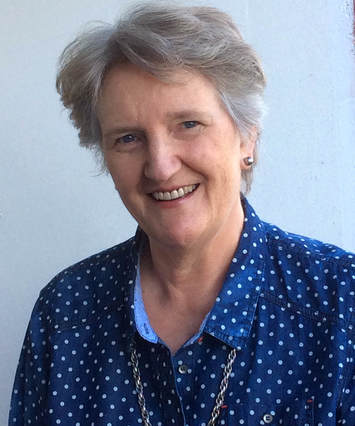Finn Harald Wetterfors, speaking at the memorial occasion following the funeral of his wife Alison, March 4th 2022
(FH waves to the camera when he arrives at the mic.)
I was saying that I am trying to use both of my legs, and that sometimes they work together (laughter) and that is partly because Helene and Ulf, who are professional physiotherapists, sitting here, came up a week ago. When there was space again in our flat, when all the wheel chairs and all the other things that Alison needed were taken away, suddenly I found there was an empty flat in which I moved around with great freedom. Then they came (the physiotherapist friends) and they said ‘You need to keep going’, and they came with a very very heavy exercise bike and I am using it every morning and every night, and that’s why I can stand here now.
It is interesting to sit here and see how the talk goes, and sometimes there is a wind, in the talks, a rush of wind, and then it dies down again, and it is lovely.
I thought the most interesting thing in the service this morning was the silence before it started. It was loaded. It was charged. And again it reminded me of how important silence is. I have learned a lot about that over these last years with Alison. She hadn’t been able to talk so much. At the beginning she could, but gradually less and less. She had this machine called a Dynavox – have you seen that? You can write with your eyes, and you can write messages, and she was in touch with the world through her eyes. She could formulate emails, and she got a lot of emails back. In the end it was more difficult. So the more important contacts we had were through one of these (holding up a laminated sheet with the letters of the alphabet set out in rows and columns).
It is the alphabet, with figures at the bottom. So when she wanted to say something – or I wanted to hear something from her – I took my fingers line by line down ABCDE, FGHIJ and so on and when I came to the right line of letters (for the first letter of the word she wanted to convey) she nodded. So maybe we came to the fourth line , and I said ‘Is it P, is it Q is it R, is it S?’ and at this she nodded or indicated ‘yes’. And then I had to find out which of those five letters in the line it was, and when I came to ‘S’ she nodded again. So for the next letter of the word she wanted to say to me, here we go again, with my hand going down the rows till we got to ‘O’. ‘SO… - what could that be?’ Now let’s go on to the next letter. So again we did the same thing till I got down to the fifth line of letters, and there was a ‘V’. SOV – sleep. So that was the last thing she said to me – ‘Go to sleep’. And I obeyed. And when I woke up she was not there. She had gone. There was – it was difficult, but very practical.
That was the way we could communicate. In the very end she could not even say ‘yes’ or ‘no’, but her eyelids could move.
So that is how this disease progressed, and I was struck by one thing. She had a very difficult disease but she didn’t have the most difficult thing to carry, and that was bitterness. Never. She never said ‘Why should I have this when all the others don’t?’ No, she said ‘When I am gone you have to take care of your family’, so that is what I am going to do. It is quite a task she has given me, but I feel she is there and in the service today which Andre did so well – and caught so much of Alison’s personality in it – I had the thought that this is just one case of hundreds of thousands of millions in the world, and I need to think about that. My case is not the only one. There are others who suffer. There are others who need my interest, who need my concern, who need to have the thought for who they are and what they are going through. And that is enough to do, isn’t it.
I think that this gathering here today would not be possible without masses of friends who have been daily, or monthly or weekly concerned about Alison, being in touch with her, coming travelling from abroad, and coming every weekend, or whatever it is. It has taught me a lot about friendship. Friendship is maybe the most important thing in the world – where the other person suddenly becomes more important. I think that is one of the things I have learned from Alison. She had a lot of friends and I think she was loved because she loved them.
I’ve heard a lot of humour and I’ve heard a lot of stories now afterwards about how she was when she was younger. For the younger generation in the family she was the aunt that was most attractive to them because she got down on the floor and played with them.
This is becoming very serious. I think I stop. But thank you for coming, and we are a band of friends, and let’s continue like that. Thank you.


